-
play_arrow
WURD Radio

We asked WURD listeners to ask questions on what issues and policies matter most to them. This week, we take a look at housing and gentrification – especially the impacts on long-time residents.
By Kiara Santos
You asked and we listened. Earlier this month, the WURD family wanted to know how the mayor will administrate issues surrounding housing and gentrification around the city.
Democratic nominee Cherelle Parker told Billy Penn that she acknowledged that gentrification is happening in areas of the city many people never thought it would reach.
Furthermore, Parker said, “the prime culprit for the negative effect of gentrification is that the city hasn’t put in place enough effective programs and guardrails to help preserve the identity and affordability of these neighborhoods, and to keep people who have lived there a long time in the homes they love.”
Using examples, Parker referenced programs like the Philly First Home program, which gives grants up to $10,000 for down payments and closing costs to new homeowners, and the Restore, Repair, Renew program and Basic Systems Repair program, which give loans or grants for home repairs.
Republican nominee David Oh has not necessarily commented on gentrification specifically, but has talked about housing costs, homelessness, and utilizing vacant lots in the city. His campaign did not reach out in time for a comment.
“As mayor, I would provide a plan to rehabilitate existing housing and build new housing in the communities where most needed. Leveraging state/federal resources for development of affordable housing is a key strategy…the Department of Behavioral Health must prioritize the development of affordable housing,” Oh told Project HOME for their mayoral voter guide. “The department needs to ensure there is adequate funding from the state for housing for individuals with serious mental illness and substance use issues.”
David Oh proposed an amendment to to the Philadelphia Home Rule Charter in 2018, during his time as a council member, relating to the operating budget and providing for a mandatory fifty million dollar minimum annual appropriation to the Housing Trust Fund or any such successor financial facility or such successor financial facilities; and providing for the submission of the proposed amendment to the electors of Philadelphia.
Cherelle Parker in the same voting guide from Project HOME stated: “I will be proposing a comprehensive approach, leaning on my intergovernmental experience, to bring together local, state and regional resources to create a state-of-the-art in-patient facility to provide treatment that so many of these unhoused people need (whether it is mental and behavioral health, addiction treatment or a combination of these). This will not be easy and will require skilled mental health professionals working around the clock to sweep our streets and respond to 911 calls, especially when someone is posing a threat to themselves or others.”
However, WURD Radio callers emphasized their concerns about displacement and what it may look like in neighborhoods – especially if they have lived there for decades.
Callers wanted to know if the elected mayor would emphasize the impact of Registered Community Organizations (RCOs) and spread awareness about RCOs through the city, potentially helping other residents become part of RCOs themselves. Others expressed how displacement will be prevented for long-time residents due to gentrification spread throughout the city.
According to the City of Philadelphia site, Registered Community Organizations are community groups that are concerned with the physical development of their community. An RCO provides:
- Advance notice of projects that will be reviewed by the Zoning Board of Adjustment or the Civic Design Review Committee.
- Organize and conduct public meetings where community members can comment on planned developments in their neighborhood.
A RCO could unify neighborhoods and when redevelopments happen, community members are properly resourced to negotiate with potential land developers.
In 2017 during her time as council member, Parker introduced a bill that would require developers of mid- and large-scale projects to complete a form outlining the potential impact of their development on neighborhoods to better inform local residents and businesses. The bill would inform those who are in a registered RCO and require developers to bring standardization to their planned projects and inform them on potential community-developer arrangements.
THE WURD WEEKLY NEWSLETTER
Black Talk Media sent straight to your inbox.
BECOME A MEMBER
The forWURD Movement is your way to
protect and preserve Independent Black Media.
Written by: Associated Contributor
Cherelle Parker David Oh gentrification Housing Kiara Santos Mayoral Election onWURD pennsylvania philadelphia philly wurd radio
Similar posts
Featured post
Latest posts
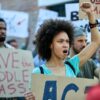
This week on WURD: Trump’s “mega bill,” Medicare cuts, U.S.-Iran tensions

Teens Cultivate Soil and Safety at Sankofa Community Farm

This week on WURD: Musiq Souldchild shares his journey, PA’s budget delays, Sherri Shepherd’s latest role

This week on WURD: Philly teachers on strike, SEPTA’s funding issues, Sankofa through farming
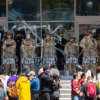
This week on WURD: I.C.E. in Los Angeles, “No Kings Coalition” march, Philly Black business market
Current show
Caribbean Connection
The rhythmic sounds of Reggae, Soca and Calypso take over the airwaves each Saturday beginning at 7pm as listeners tune in to hear the voices of people and newsmakers from all over the Caribbean and feel the flavors of the islands through the sounds presented by longtime Jamaican Radio Personality, Lloyd Cummings, a signature voice of the Caribbean community. Voted the best weekend show in Philadelphia by the Ford Motor Company March of Dimes Achievement in Radio Awards, Caribbean Connection is your place for all things Caribbean.
closeUpcoming shows

UnPacking with Eric Cole
10:00 pm - 12:00 am

Funky People Radio
12:00 am - 2:00 am

The Let Out
2:00 am - 6:00 am

Sunday Morning Praise
6:00 am - 11:00 am
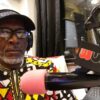
New World View
12:00 pm - 2:00 pm
WURD Radio LLC © 2012-2021. All rights reserved.


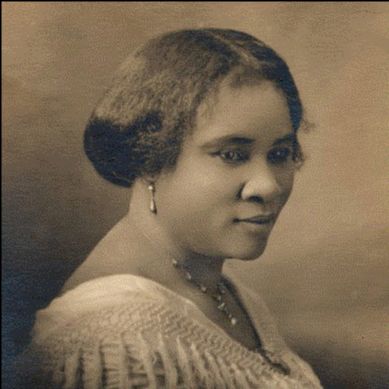

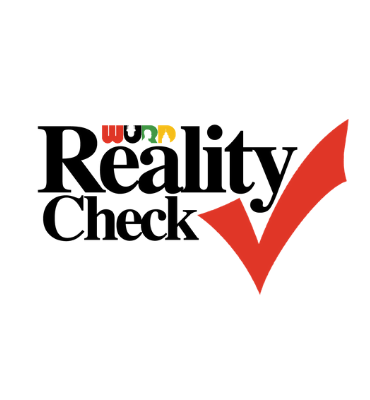

Post comments (0)